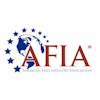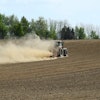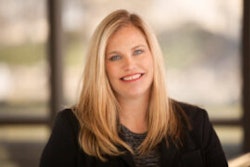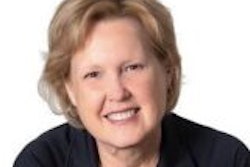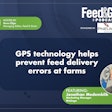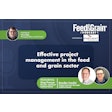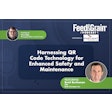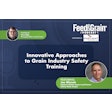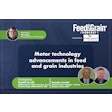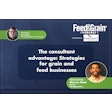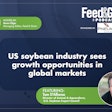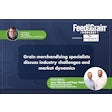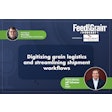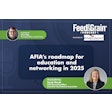Steven Kilger, the managing editor for Feed & Grain and host of the Feed & Grain Podcast, talks with Marcus Neal, consultant to the grain, feed and other agribusiness and owner of MN AgSolutions. They discuss:
- When to hire consultants for your business
- What to expect when working with a consultant
- Promoting a culture of safety
- Working around labor shortages
- And much more.
Transcript:
Steven Kilger 0:01
Hello, everyone. We've been on a bit of a break for the GEAPS Exchange, but the Feed & Grain Podcast is back. My name is Steven Kilger. I'm the managing editor for Feed & Grain and the host of the podcast. My guest today is Marcus Neal, owner of MN AgSolutions. Marcus is a consultant to the grain handling and feed manufacturing industries, along with other agribusinesses. He also so happens to be one of the first people I met in the industry. I've known him for a really long time. And he's a great guy and a fantastic person to have a conversation with.
Kilger 0:31
We talked about what to expect from hiring a consultant, why it may have been a good option for your business and what he sees happening in the industry. But before we start the conversation, we just have a little bit of housekeeping to do, like every other podcast asks you to do. If you're listening to this in an app. If you wouldn't mind giving us a like and subscribing, it would really help us out. If you have an idea for a topic you would like me to cover or someone in the animal feed grain handling or related industries you think I should talk to, let me know on the podcast page on feedandgrain.com. There's a button right under the title which will let you send me an email directly. I'd love to hear your thoughts and what you think we could be doing better. Now. Enough of that onto the conversation itself.
Good morning, Marcus. Thanks for taking the time to talk with me today. Can you tell our listeners a bit more about yourself?
Marcus Neal 1:20
Good morning, Steven. I appreciate very much you having me on this podcast talking about consulting in general but in AgSolutions specifically. As you stated, I'm Marcus Neal, 25 plus years in the industry, agribusiness industry, in particular, some parts in grain handling or bulk material handling, some parts feed, and some parts further processing.
Neal 1:43
So I've got an agricultural engineering degree from the University of Minnesota. Like I said, I've been in the industry for over 25 years. And that's everything from designing and building to operating to acquiring, assessing, and so really every aspect from an operational perspective I've covered in my career. Started out with some of the big companies, Cargill and that sort of thing and have done this, in terms of design, build, acquiring, assessing, operating in different parts of the US, spent about two and a half years in Asia, based in Kuala Lumpur, but had responsibilities in some different countries, Canada, Mexico. So it's been really fun and, from what I hear, a fairly unique career.
So a little bit of time with Cargill, a little bit of time with Purdue Agribusiness company that was called the DeBruce companies that ultimately became Gavilon, Lansing Trade Group that ultimately sold to The Andersons. And then before starting AgSolutions, I was with Interstates, which is an electrical engineering and construction automation company. So about two years ago, I started in AgSolutions. I really wanted to fit what I saw in the industry as a need to support some of the smaller family-owned businesses that were in the Ag space as well as some of, the smaller Co-Ops. So that's kind of what I thought my niche would be, and it expanded from just general operations, EHS or environmental health and safety and project management to a lot of operational strategies.
So companies that were going through mergers and acquisitions were bringing in regional companies or grain companies that they didn't have a lot of experience with. And so strategy around how to incorporate those operations, those footprints into their existing operation and make a blended, take the best practices from one and blend them into the other. Some companies are struggling with that. And so I've had success in helping them to do that. Another is just, you know, had some ISO-certified companies that knew that they didn't need that same sort of certification or that level of complexity within their grain handling system but also knew that their grain handling standards weren't where they should be for a commercial operation. They were fine for a farmer or production operation but not for a commercial enterprise. And so came in and would assess that facility, and really cater programs to them that would cover low hanging fruit, but also give them some comfort, their risk liabilities were mitigated. It's really been quite a fun two years. And I still think that the industry is going this way.
I'll go back a little bit to say that what I was really focused on was helping those companies that needed 25 plus years of experience and expertise skill set but either didn't need it 100% of the time. In other words, they didn't need somebody full-time on their team to handle this. Or they simply couldn't afford to have somebody full-time to do it. So they would come to me, and we would have a sit-down and look at the scope of work. Were they really needed to cater the scope to what their needs were addressed, what are the deliverables that go along with that and then? And once we accomplish that, I will go away for a little while. They would assess it internally, and kind of come up with a game plan, or I would help them through that game plan, and they would start executing against it. I could help if that was necessary. But oftentimes, what I would see is you come in, do an assessment, go away for a little while, oh, a month, or six weeks later, they come back and say, Hey, here's kind of what we see in the report that you supply.
And from there, there are more projects that come up with the largest client that I have right now. I think I'm on project seven or eight with them. And it started out as a very small assessment of their grain facilities. And it is thrown into looking at business strategy and operational strategy across different divisions within their parent company, everything from efficiencies in receiving systems to analyzing markets that they hadn't been in before, i.e., transloading operations that were commodities that they hadn't handled, they had rail siding, another company approached him that wanted to get into that needed rail siding, but didn't want to build, it didn't have access to it, and they were supplying equipment. So this company was able to gain access to a market that they didn't previously have and add some revenue to their bottom line with really a put-through agreement from another company that handled all the logistics supply company, and they really just needed to supply a person that could connect and disconnect equipment and a generator set gassed up. And so it was really kind of fun to work on. So yeah, those have been some of the exciting things that I've been able to do.
Kilger 6:35
Well, you're a jack of all trades. And, and Well, part of the transition of our industry from, well, where there used to be a lot of people out there with 25 plus years of experience, right, and those people are now retiring, and you have smaller companies, smaller facilities that don't have the Cargill budget, like you said, to keep someone like you kind of on staff at all times. So it really is a benefit, especially since you come in versus like you because you can always get an equipment company to consult; you're right. They're always telling you what you want to do. But with someone like you, you're on their side versus, say, what equipment company would be, which I mean, they're not on their side, but they're trying to sell you something.
Neal 7:17
Right? Yeah, and I'm glad you said that because my experience, my career, has really been, for me, quite awesome. I've had the ability to work with some fantastic people with some fantastic teams all over the world, really. And within that, from an engineering perspective, you gain an insight into people. And so, for me, I don't have these agreements with major manufacturers when I come in to assess a facility or to talk to the team that is actually going to do the work or is looking for help. They get 100% of me. They get my opinion as if my name was on the moniker, not my trying to sell them some specific piece of equipment because I have something in it, there's something for me, that's not the way that I operate. I want the integrity and the relationship that we build to be built on just that trusted integrity. And when they hear something from me, or they ask me a question that what they get is emphatically Marcus Neil, not Marcus, Neil who's trying to sell them ABCD, whatever. And that has worked. That has worked well. It is a model that I adhere to, to a standard that I don't know that I could do differently if I wanted to. It's just. It's in my nature. It's the way that my character was built.
I mean, even as you were talking about your career experiences, you notice that a lot of those, you kind of now have these two categories of companies which you have the big ABCDs, and as you were talking about like and they were bought up by the Andersons, it's happening all the time. And then you have these other smaller companies and co-ops who are just trying to compete and be out there. That's really where you come in. Right? You're kind of giving them that big company advantage on, assumingly, their smaller budget, which seems really useful. Exactly.
The nice thing, and I appreciate the fact that you asked that question or made a comment the way that you did, because everybody is under budget, everybody's looking at Capital utilization, and those kinds of things. And so I really find enjoyment in helping companies be more successful, be more efficient. And it doesn't mean that they always need to follow exactly what I say. One of the things that I tell clients all the time is, look, I may have an idea. But my expectation is when I put that idea on the table, it's owned by all of us, and whatever comes back as the solution is better than the idea that I put out there originally so and I expect that with their ideas as well that, it should be better collectively than any one person's idea. The other thing that I tried to do, and I lead with this, is our first brainstorming session when we're talking about what the needs are.
There is no "Well, we've already tried that," "we've already done that," or "well, that's not going to work because of," we're going to put all ideas on the table, we're going to put the sacred untouchables, right. And I want to know upfront, if there are some things that are just non-negotiables, we're, the color is blue. And we're never going to go away from the great, but I'd like to know that so that we're not having conversations about the color green when it's always going to be blue. And that's a very easy example of that. But so within that idea generation in that brainstorming session, it allows things to be open to moving fluidly. And then after a night to sit on it and kind of ponder it, then you start going, Okay, well, here are some of the complications to that. It doesn't mean that it can't work. It just means that there are complications to it. And we want to know what those roadblocks are, what those hazards are along the way. The other thing that I put in the majority of my scope is I want to have the opportunity to interview operators and the plant personnel, not just the managers and in the upper management because some of the best ideas in every operation come from those folks that are doing the work. And so put in the scope of work that I want the opportunity to not necessarily interview but certainly have conversations like we're having where I can ask them questions, I can get feedback from the way that they see the world. I'll use this example in one of the assessments of a receiving system. I was observing the system and went out and talked to some of the truck drivers. Some of the truck drivers were company drivers. Others were producers that were delivering to the facility. And they had some really great ideas that we ended up incorporating into the final solution for how to address the efficiencies or lack of efficiencies that were going on in the receiving system.
Kilger 11:47
Yeah, well, those are the guys that actually use the equipment, and they use the process. Because it's nice to have something on a sheet somewhere in an office saying this is how it should work. This is how it's supposed to be, and then actually get onto the site and have the reality of what people are dealing with. Is that the first step when people hire you? Then you go in, and you set up meetings, you chat with people, and I'm guessing it changes a little depending on what kind of job it is.
Neal 12:14
But so the first step is really an engagement. Either I reach out to somebody, or somebody reaches out to me, where I've had the most success is somebody says, "Hey, I see that you've got this issue," or "you're talking about this issue, the guy that you should really talk to is Marcus, here's his contact." Word of mouth that makes you a subject matter expert in the industry is really where I've had the most success. But the first step is to contact me. And then we have a conversation around what really your needs are. Because oftentimes what happens is somebody will say, hey, I need this. And through conversation and asking a couple of pointed questions, you find out well, that's true. However, they also need this, this and this. There's so much legwork that can be done before actual boots are on the ground. And so having those conversations, whether it's through teams or zoom, and getting an understanding of what really they need, what they're really looking for.
From there, if we are in agreement on the generalized scope of work, we start looking at some of the documentation that they have. It can be Google Maps; it can be videos: it can be pictures. There are a lot of things that can be done over computer technology has gotten us to a place where there are a lot of things that can be done before we have to put boots on the ground. Now, typically, we still have to put boots on the ground. But we can really get a broad picture of what a facility is, what a company is, what a region is, by looking at some of the things they've done in the past, whether that's assessments or audits that they've had projects that they've done, OSHA inspections, fines that they've gotten those kinds of things. There's a myriad of different things that we can do from a computer using technology before we ever have to put boots on the ground. And then, once we put boots on the ground, we get a more well-rounded picture of what the need is. And then typically, what I do well, some companies like to talk about what the assessment is before they put anything in writing. And others just want the assessment. They simply want you to put together a draft or a final commit that to them and then have a conversation where they can ask a question.
Kilger 14:21
I feel like that first step. The mystery behind the first steps of this work is always a big question and a big hurdle for, I think, a lot of people. I'm guessing you're pretty willing to talk to anybody, right? I mean, if they reach out and they have a question, please give them the time of day.
Neal 14:35
My wife came up with it, but my tagline is "Conversations worth talking about." And that's because I do think that as we're all in the business, agribusiness, further processing, grain handling sector of agriculture, and one of the things that I love about this industry is that folks are really down to earth and willing to have conversations and having a conversation is the first step, and there are times when I'm not the right person, I'm not the right fit. If, however, networking is so important as well that I know somebody who is who can help in this situation, it really becomes the first step of having the conversation, understanding and assessing needs coming up with a scope of work that is fitting and really reflects what the company's wants and needs are executing against that.
And then putting together a plan that will benefit them, again, being conscious that everybody has capital constraints, right? How do we deploy the dollar, those capital dollars, in the best way possible, but the old school way was the best bang for the buck? Well, that's true. But really, what we're looking for is how do we deploy our capital in such a way that our ROI is best that we can support if it's a grain trading company, that we can support the trades and the market that we're operating in, that we can develop or grow market share in an area based on our operational efficiencies, all of those kinds of things go into that thought process.
Kilger 16:05
We saw each other a few weeks ago at the GEAPS Exchange. And that one of the big biggest things with COVID, and everyone being locked inside and a trade show being canceled for a few years before that was there were none of those conversations, which is what's great about our industry, in our case, the feed manufacturing Grain Handling industry is that people do talk and they do enjoy sharing ideas and helping others solve problems, which is kind of a unique part of our industry is it's like you said very down to earth. What kind of, you're the expert, what kind of issues are you seeing out there? What do you find that people are kind of struggling with? Anything that's, as I like to call it low hanging fruit, anything that's easy that companies should be at least exploring pretty quickly.
Neal 16:52
We continue to have, and it's not so much in the commercial space. It's really in the producer space. We continue to have been in governments and not just been in governments, but we continue to have or put team members and employees in compromising positions. There's just no reason for them to be in. The majority of the companies in the industry have safety somewhere in their core values, right? And so it should be at the forefront of everyone's mind. Unfortunately, because we are such a unique industry, we still tend to think of it as a separation between safety and operations, as opposed to them being blended and really being. I don't know if dependent is really the right word, but it is certainly ingrained in one another. There is no operation that we should do that doesn't have a safety component to it, right?
The overarching thought process should be how can I do this in a safe manner, that means I go home at the end of the day, or means that my coworkers go home at the end of the day in the same shape that they came to work in. And even though they've been a focus for many, many years, and as I said, a lot of companies have that as a core value, we still continue to have situations where shortcuts are taken somebody prioritizes production over safety or, well, it won't happen to me, or I can quickly get out of the way if something starts going south, all of those kinds of things. So continuing to focus on the behaviors of people, the behaviors of team members.
And one of the things I always enjoyed sometimes I would do it as a test. I would intentionally not wear my hard hat out of the office or break room or something like that to see if somebody would say, "Hey, Marcus, you're missing your lid," or they'd go, "hey, Marcus," and just knock on their head, I would do that intentionally. Because what I want to foster is even though I'm director or VP or whatever, I'm not above having my employees say or those that I work with, say, hey, I want you to go home at the end of the day, I want to keep you safe. Therefore I'm going to protect your back in the same way that I want you to protect my back. When those things are ingrained together, it really becomes a culture and a company that people want to work for and work with.
Kilger 19:09
We can have all the safety gear and all the equipment we want. But most of the safety struggle is the psychology behind why humans do what humans do. And a lot of it is even if we're not having as many great engulfments. So you still see, you know, people leaving stuff on the floor that can be tripped over and not turning off a machine when you need to get something real quick and all these little things that don't sound serious until they're suddenly a very serious issue.
Neal 19:37
Right. Yep. The other big thing that I'm seeing, and I just actually just wrote about it, was an operational strategy. How are companies, because companies have gotten so focused on what I termed the sexy money, right? The training money, the commercial merchandising, those kinds of things, where and not as much focus on the operational or even the projects the cost savings that occurred now Can you cost save your way to prosperity? Probably not. However, the real dollars that are saved in operational efficiencies in equipment, not failing equipment running, when it's optimal time for it to run, I got a lot of harvests when we're in our biggest production runs, those kinds of things, there's real value in that to companies that oftentimes gets overlooked or certainly isn't looked at as well as others.
The operational strategy that I focus on is how we make our trading operations or production operations better by utilizing our equipment, our assets, our physical assets, and our facility assets more efficiently more effectively, as it relates to our trading opportunities. And so that focus has really allowed us to be successful in helping companies manage through that. It was a big topic last year, and I think it's going to continue to be a big topic to your point earlier, especially as we continue to lose, not lose, the industry loses, but people retire or leave the industry altogether. It was a big topic of conversation at GEAPS. How do I retain people? Or how do I find the people with the skill sets that I need for my operation for my organization? Well, oftentimes, we're trying to fill positions of people that aren't there. It's not that you can't attract them. They don't exist. So I need to call 6-10 people to run my operation. Well, I only have half of that. And there are just no bodies to fill those positions. So how do I manage through that? How do I overcome the fact that I still have a business to run? And yet I don't have people to do that? Well, there are to manage to do that.
Now. There's capital involved in that. But those are some of the strategies that we talked about in planning and in doing it in a way that is forward-thinking. And what I mean by that is, when you have a problem is not really the time to be addressing the problem, you have to certainly, but if you can think through what do I anticipate the issues or the opportunities going to be, and then start strategizing and planning for that now, so that when I get to the point, I've already taken care of it right? Now I'm just executing the plan that I've already put in place.
Kilger 22:16
The industry got so used to having a supply of kids that grew up on a farm or had some kind of agriculture experience in the background, and you hire them, and you move them, and you drain them, they're really not there anymore. So you got to either look elsewhere are what I think is automation and things sales will be the savior of the industry when it comes to the worker shortage because more and more can be handled by less and less people, like you said, as long as you invest in those systems.
Neal 22:43
Yeah, and there are companies that do just a fantastic job of that. But oftentimes, companies don't necessarily know who they are or what is the best way to go about planning out and phasing automation or technology into my existing operation. And so again, I get great joy out of helping companies understand that phase process, acting as a representative for them with all of my background, all my experience all my skill set so that they can utilize a phased approach to get to ultimately where they want to be with some want to be fully autonomous, right? They want a full autonomy facility. Others simply want to be able to do it more efficiently with the people that they have at their site today. And how do I fill the gap of those that I don't have? And you're right technology is a part of that solution.
I like to. I don't often use it. Well, in all honesty, because it makes it sound like, in some cases, I'm being dishonest. I use the term transparency because I will be honest about the fact that there are times when I'm opaque, meaning that I don't share everything. I'm working with a client. My goal is to be fully transparent. Well, even though the scope says hey, we're only going to work on this receiving system. Suppose I see something in the production system that needs to be addressed. I will make that known. Here's what I see, even though our scope of work is limited here. When I come in to work with a client, they get 100% of me. They get 100% of me, whether that's good, bad or indifferent. They get all of me. I don't hold back just because, well, this is the only thing that we're focused on. Because this is our scope of work, we'll talk through what are the other things that I'm seeing as we're assessing and evaluating the needs.
Kilger 24:29
And that's what you want, right? When you hire a consultant like it, especially with someone with your experience is with limited budget, you want someone to go and tell you where you're going to get the best bang for your buck. And if you're trying to improve efficiency or whatever and you're feed mill, your grain elevator, if this project I'm directly focused on is going to be, that's not the one that's gonna give me that best bang for the buck. I want to hear about it. Even if we decide we're not going to fix that right away. It's now a project that's on the list of things we can do. Marcus, Thank you so much for joining me today. It was great talking to you. We'll have to have you on the podcast again sometime.
Neal 25:04
Steven, it was an absolute pleasure. I appreciate you putting this together and waiting for the on, and yes, anytime I would love to come back and talk about this in further detail or anything else that might be hitting the news wires that are relevant to our industry. Thank you very much.
Kilger 25:19
Well, same here. You have your ear to the ground. So let me know what you're hearing out there. Awesome. Well, thank you, Marcus. Thank you, everyone, for joining us today listening and stay safe out there.
.jpg?auto=format%2Ccompress&crop=faces&fit=crop&h=48&q=70&w=48)
